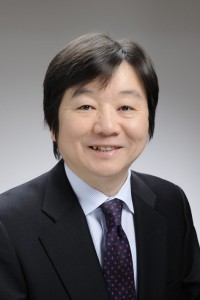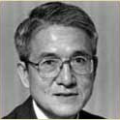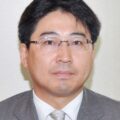Promoting Japan-U.S. Cooperation by Making a Proactive Contribution to Peace — Japan’s Foreign and Security Policy after the Japan-U.S. Summit Meeting —

KAMIYA Matake, Professor, National Defense Academy of Japan
The most important outcome of U.S. President Barack Obama’s recent Asia tour is that the United States and Japan overcame the strains which had been noticeable between them recently, and reaffirmed that they would strengthen their alliance. Not only that, they openly endorsed this through various concrete measures and commitments. While it is true that the president showed some consideration, not wanting to damage relations with China, the United States made clear its intention to keep China’s excessive self-assertion in check, alongside Japan and other countries in the region. It represents a highly significant development.
Obama declared that the Senkaku Islands are subject to Article 5 of the Japan-U.S. Security Treaty, and it is enormously significant that a U.S. president made a statement like this for the first time while China is repeatedly engaging in acts of provocation near the islands. Prime Minister Abe Shinzo and Obama agreed to oppose any attempt to change the status quo by force, saying “Our two countries oppose any attempt to assert territorial or maritime claims through the use of intimidation, coercion or force” (U.S.-Japan Joint Statement). The two leaders had previously stressed that it is important to maintain a rules-based international order in the face of the rise of China. At this summit meeting, they issued a statement of intent that Japan and the United States will cooperate with each other and demonstrate leadership in order to achieve this goal.
As a result of this declaration, the sense of unease on the Japan side that the U.S. stance toward China might be wavering has been quelled for the time being. Concerns over whether the United States will maintain its rebalancing strategy in the future have also been eased substantially. The first paragraph of the joint statement includes the phrase “The U.S. rebalance to the Asia-Pacific and Japan’s policy of ‘Proactive Contribution to Peace’ based on the principle of international cooperation both contribute to the Alliance playing a leading role in ensuring a peaceful and prosperous Asia-Pacific.” Concerns have been eased because this can be read as a promise by the United States toward Japan that the rebalance policy will continue.
This sentence also means that the United States has publicly endorsed the proactive pacifism (the policy of “Proactive Contribution to Peace”) laid out by Abe. It was also clearly stated that the United States “welcomes and supports” prime minister’s policy review aimed at allowing Japan to exercise the right of collective self-defense. Overall, the impression is that the United States has more or less accepted all of the requests the Japan side has made in the security field.
Given this outcome, what should Japan’s security policy focus on in the future? Japan should support the U.S. rebalancing strategy by putting into practice the policy of proactive contribution to peace. What is important here is the wording of the first paragraph of the joint statement quoted earlier, because this means that Japan has now made an international commitment to the United States to contribute to peace proactively. The United States will continue the rebalance to the Asia-Pacific but there are limitations due to its financial woes. Japan will make up for this shortfall by making proactive contributions to peace. The recent summit meeting can be said to have produced such an arrangement.
There were two types of passivity inherent in Japan’s postwar pacifism. There was an oath that Japan would never again be a destroyer of peace, but the willingness to act for peace was scarce. The role of military force in the interests of peace was also not acknowledged. Japan will never use military force in the interests of national ambition but it will play a role commensurate with its national power both militarily and non-militarily in creating and maintaining peace in the international community. Unless Japan becomes such a country, it will be incapable of providing the United States with sufficient cooperation to support its rebalance to the Asia-Pacific. Will Japan ever be able to change? This is no doubt the biggest homework assignment set for Japan after the recent summit meeting.
It must also not be forgotten that the alliance between Japan and the United States was not necessarily smooth prior to the recent summit meeting. I have already mentioned the concerns about the United States on the Japan side, and the U.S. side also harbored concerns about Abe’s nationalist streak. The U.S. side was also frustrated that this had caused security cooperation between the United States, Japan and South Korea to stagnate. Japan’s foreign policy in the future needs to combine prudence to avoid rekindling such concern with ingenuity aimed at rebuilding cooperation between the United States, South Korea and Japan.
Finally, the recent Japan-U.S. Summit Meeting fell somewhat short of expectations on the economic front. This is because the leaders failed to reach a basic agreement on the Trans-Pacific Partnership (TPP). But national security and the economy are the “two wheels” of the Japan-U.S. alliance. In the weeks and months ahead, the two leaders will no doubt come under even more pressure to come to a decision on this issue.
Translated from “Sekkyokuteki Heiwashugi no Jissen-niyoru Nichibeikyoryoku no Sokushin wo (Promoting Japan-U.S. Cooperation by Making a Proactive Contribution to Peace),” RIPS’ Eye No.179, May 12, 2014 (Courtesy of the Research Institute for Peace and Security [RIPS]) [2014 May].
Source: http://www.rips.or.jp/research/ripseye/2014/post-180.html [Japanese only]



